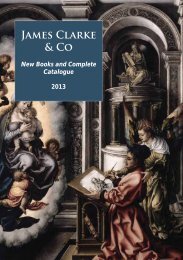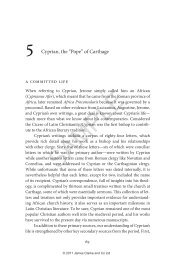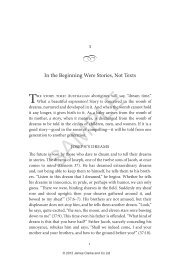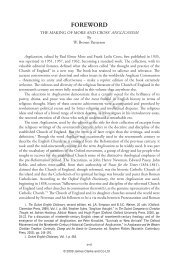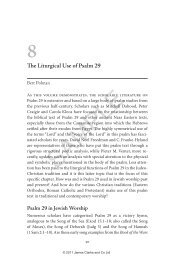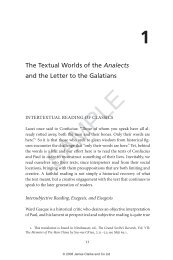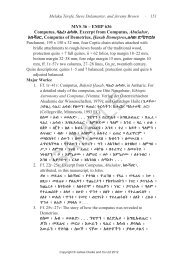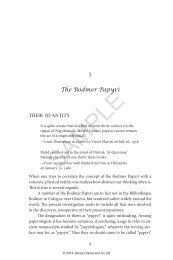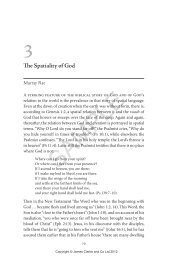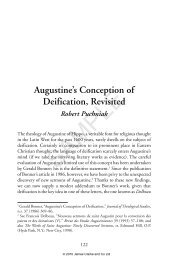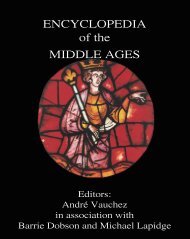Introduction by Kirk R. MacGregor - James Clarke and Co Ltd
Introduction by Kirk R. MacGregor - James Clarke and Co Ltd
Introduction by Kirk R. MacGregor - James Clarke and Co Ltd
Create successful ePaper yourself
Turn your PDF publications into a flip-book with our unique Google optimized e-Paper software.
<strong>Introduction</strong><br />
Due to the prominence of the aforementioned three models<br />
throughout the past five centuries, it is little wonder that the vast majority<br />
of Western evangelicals associate eternal security with one of these.<br />
Nevertheless, these are far from the only ways Christians past or present<br />
have judged eternal security to be possible, as a plethora of views<br />
on theology proper, hermeneutics, <strong>and</strong> anthropology have produced<br />
numerous perspectives on eternal security from the biblical period<br />
onward. In an attempt to start remedying the knowledge gap, this first<br />
print anthology from Kevaughn Mattis’ online journal Testamentum<br />
Imperium features thirteen essays from an international array of scholars<br />
which bring a wide scope of scriptural, historical, <strong>and</strong> philosophical<br />
perspectives to bear on the question of eternal security. While all the<br />
contributors subscribe to the doctrine of eternal security, they do so in<br />
various ways, with a balance between adherents to the first two models<br />
(Calvin’s perseverance of the saints <strong>and</strong> the mediation between synergism<br />
<strong>and</strong> monergism) <strong>and</strong> exponents of other interpretations relatively<br />
unknown in the popular mindset.<br />
For the first time, this volume maps out the contours of a wide trajectory<br />
of eternal security from its Hebraic origins to contemporary theological<br />
developments. To accomplish this goal, the book is divided into two<br />
parts. Part One, “Biblical <strong>and</strong> Exegetical Studies,” analyzes <strong>and</strong> strengthens<br />
the canonical roots of eternal security which form the common foundation<br />
of all subsequent models of this doctrine. Part Two, “Historical <strong>and</strong><br />
Philosophical Studies,” considers issues of theological <strong>and</strong> social history<br />
as well as philosophy of religion which pertain to eternal security. Here we<br />
examine the understudied positions on eternal security of such thinkers<br />
<strong>and</strong> schools of thought as Clement of Rome (c. 40–99), Albrecht Ritschl<br />
(1822–1889), Karl Barth (1886–1968), <strong>and</strong> process theology, <strong>and</strong> we assess<br />
the practical impact of Calvin’s preaching on predestination on the<br />
daily lives of his spiritual charges. Moreover, we philosophically delineate<br />
the permanent changes to the overall course of history <strong>and</strong> the human<br />
nature of individual believers accomplished <strong>by</strong> the dual event of Christ’s<br />
death <strong>and</strong> resurrection as well as their implications for personal salvific<br />
assurance <strong>and</strong> Christian ethics.<br />
SAMPLE<br />
xx<br />
© 2011 <strong>James</strong> <strong>Clarke</strong> <strong>and</strong> <strong>Co</strong> <strong>Ltd</strong>



